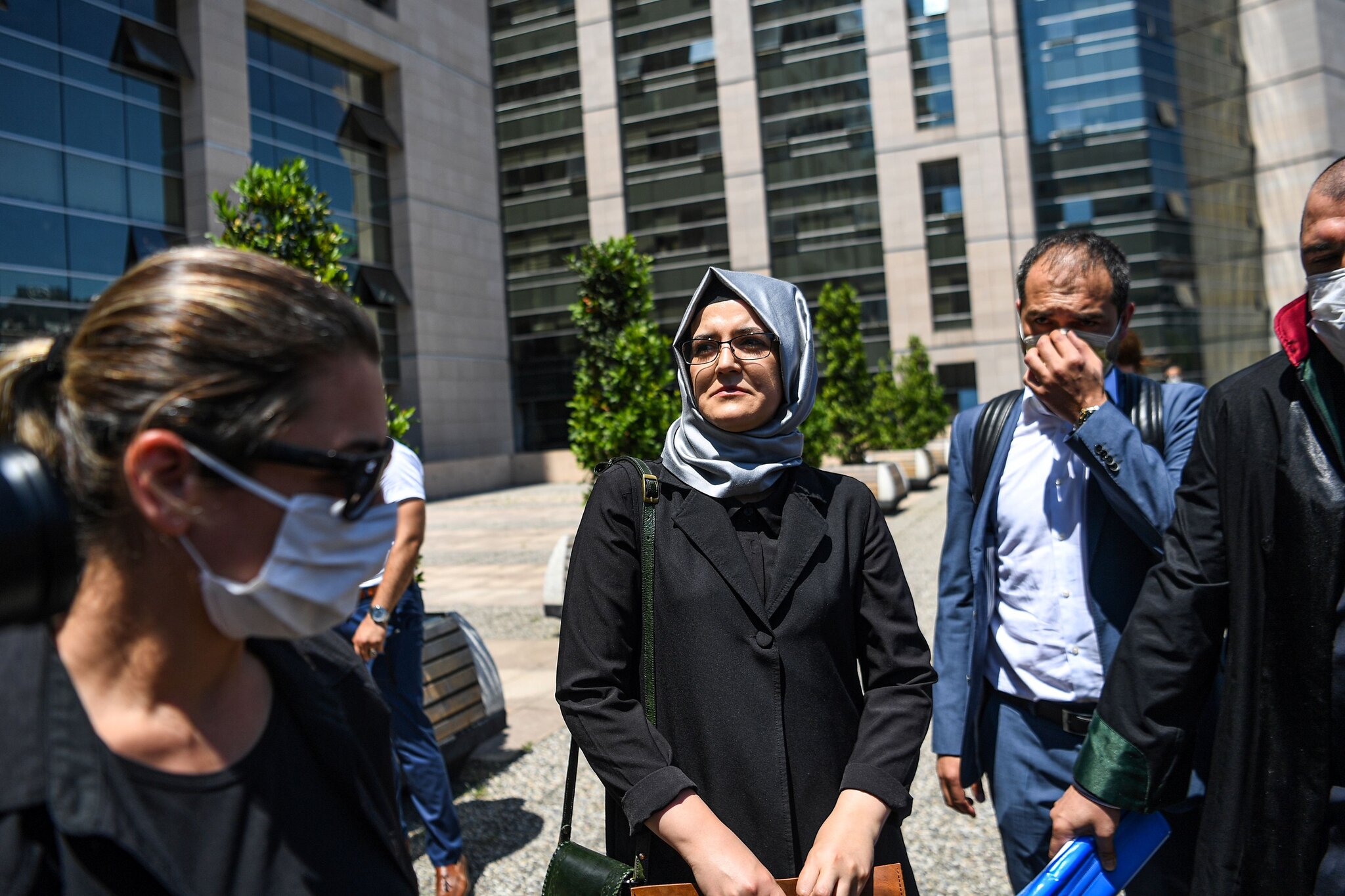
The fiancée of the slain Washington Post columnist Jamal Khashoggi accused Crown Prince Mohammed bin Salman of Saudi Arabia in a lawsuit on Tuesday of murder and dismemberment in an attempt to silence Mr. Khashoggi’s criticism of the kingdom.
The lawsuit also names more than two dozen other Saudis, including people now imprisoned for the killing as well as senior government officials who are close advisers to Prince Mohammed, Saudi Arabia’s de facto ruler.
Suing foreign leaders in federal court is a difficult task. But lawyers for Hatice Cengiz, Mr. Khashoggi’s fiancée, and Democracy for the Arab World Now, the human rights organization he founded, said they hoped to use the lawsuit to gather documents from Saudi Arabia and uncover more information about his death.
The lawsuit was filed under the Torture Victim Protection Act of 1991, a law that has been used to sue other foreign leaders.
ADVERTISEMENT
Continue reading the main story
“The suit seeks to hold accountable those responsible for the brutal premeditated kidnapping, torture, assassination and dismemberment of a U.S. resident, Mr. Khashoggi,” said Keith M. Harper, a lawyer for Ms. Cengiz, at a news conference. “This lawsuit is also a search for the entire truth.”
A spokesman for the Saudi Embassy in Washington did not respond to a request for comment on the lawsuit.
Mr. Khashoggi was killed inside a Saudi consulate in Istanbul on Oct 2, 2018, while seeking paperwork for his upcoming wedding. Ms. Cengiz was waiting for him outside. A hit team dispatched from Saudi Arabia brutally dismembered Mr. Khashoggi’s body, which has never been found.
But Turkish authorities acquired an audiotape of the killing, which they eventually played for Gina Haspel, the C.I.A. director. The C.I.A. concluded that Prince Mohammed was culpable for Mr. Khashoggi’s death and most likely ordered the killing.
But President Trump, in a startlingly candid statement, said at the time that the American interest in selling arms to Saudi Arabia, containing Iranian aggression in the region and ensuring low oil prices took precedence over confronting Prince Mohammed about Mr. Khashoggi’s slaying.
Intelligence officials said the evidence altogether demonstrated Prince Mohammed’s culpability. But Mr. Trump clung to the idea there was no “smoking gun” that definitively linked the crown prince to a direct order.
“It could very well be that the Crown Prince had knowledge of this tragic event,” Mr. Trump wrote in his statement, “maybe he did and maybe he didn’t!”
Mr. Khashoggi, in his Post columns, television appearances and advocacy work, was a persistent critic of the Saudi government. He cast doubts on Prince Mohammed’s reform efforts, accusing him of cracking down on domestic dissent. Mr. Khashoggi also repeatedly criticized Saudi Arabia’s war in Yemen.
“A group of criminals thought Jamal’s voice was too powerful, too threatening, and so they decided to silence him permanently,” Ms. Cengiz said on Tuesday.
According to the lawsuit, Prince Mohammed and other associates were particularly worried about Mr. Khashoggi’s plans to use his organization to push for democratic reforms and human rights in Saudi Arabia. The killing of Mr. Khashoggi, according to the lawsuit, was meant to end those advocacy efforts.
“The ruthless torture and murder of Mr. Khashoggi shocked the conscience of people throughout the world,” the lawsuit said. “The objective of the murder was clear — to halt Mr. Khashoggi’s advocacy in the United States.”
The Saudi government imprisoned eight people in connection with Mr. Khashoggi’s death and held a trial that was largely secret. Five were originally sentenced to death. Ultimately, after one of Mr. Khashoggi’s sons said he and his siblings had forgiven the men who killed their father, a Saudi court reduced the sentences. Five defendants were given 20 years in prison. Two others were sentenced to 17 years and another to 10 years.
Human rights groups said the proceedings ultimately punished low-level government agents, protecting Prince Mohammed and other senior officials.
While the killing of Mr. Khashoggi took place in Turkey, Saudi officials in Washington took part in the conspiracy to kill him, according to the charges in the lawsuit.
Mr. Khashoggi had originally sought to acquire the documents necessary for his marriage to Ms. Cengiz at the Saudi embassy in Washington but was redirected to the consulate in Istanbul, according to the lawsuit.
“This fatal misdirection took place in the United States and was part of the overall conspiracy intended to have a direct impact on Mr. Khashoggi’s political activities in the United States,” the lawsuit said.